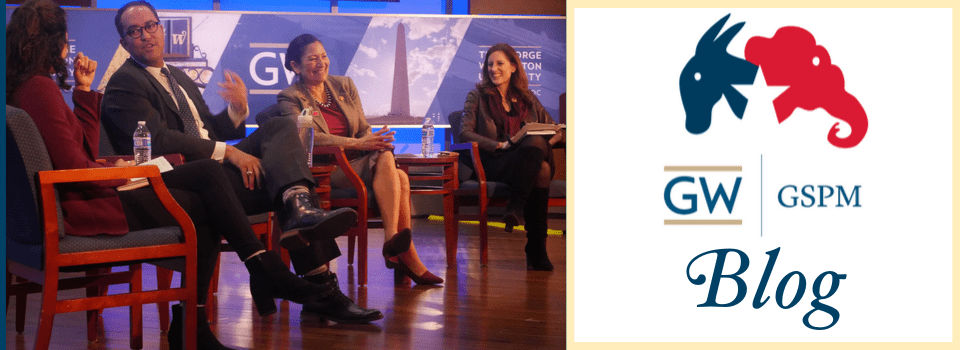Deep dives into one’s personal life, hours on the road or the phone drumming up volunteer or financial support, and the understanding that most of the candidates that start a campaign finish it with a concession speech. Running for office is difficult both mentally and physically, so why do people do it and what should they know in advance?
At the Graduate School of Political Management, our students will be able to hear why, and everything that momentous decision entails in PMGT 6434, Running For Office, taught by former U.S. Rep. Dan Maffei, D-N.Y.
In addition to being a candidate, Maffei served as a communications strategist and spokesperson in the halls of Congress and on the campaign trail. Rounding out his resume was a stretch as a television news reporter and producer. His 360-degree view of the campaign process is part of the reason why our school is so thrilled to have him leading this course.
“’The credit belongs to the man who is actually in the arena,’ proclaims Theodore Roosevelt. Having seen politics from so many viewpoints, I can communicate to the student how different it is to be the one with the name on the ballot. Political theory and well laid plans fly out the window as ideals are challenged and egos assaulted,” said Maffei.
Maffei’s course uses a series of in-class simulations to take students through key campaign milestones, such as an announcement of one’s candidacy, a stump speech, and a campaign contribution solicitation. Since the unexpected is to be expected in politics, Maffei’s class will also have to determine a communications strategy to debunk an inaccurate news story and hold a “damage control” press conference.
Maffei added, “Plans for governmental change and sophisticated policy ideas are irrelevant if their advocates can not win elections or – more likely given today’s toxic political atmosphere – refuse to ever run for office. Through personal accounts of and by politicians, readings on critical aspects of real world politics, and intense self-examination, group discussion and practice exercises, I will give students a sense of what it is like and what is needed to run, win, and hold political office.”
At the end of the course students should be able to understand the decision-making process behind a run, the components of a modern campaign, the purpose behind any effective candidate, and the key personality traits needed to succeed amid the intense pressures of a political campaign. Starting a run with that knowledge should give our prospective candidates and campaign managers a head start over the competition.

